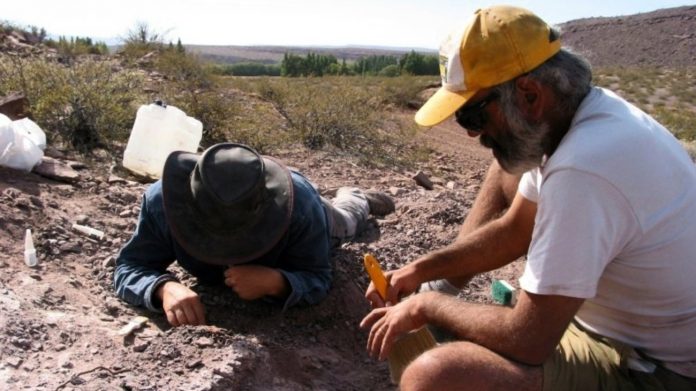
researchers have discovered in the South of Argentina, a previously unknown new species. Paleontologists from Spain and Argentina, found in the vicinity of the Andes, the bones of a twelve-Meter-long animal, and two of the smaller specimens. The herbivores lived 110 million years ago in a desert territory in the present province of Neuquén. The newly discovered species was given the name Lavocatisaurus agrioensis. It belongs to the family of the Rebbachisauriden, which were four-legged herbivores with small head, long neck and a long tail.
“We have found the largest part of the skull bone and a large number of teeth, were which we create a fairly complete reconstruction,” said José Luis Carballido from the Museum Egidio Feruglio, in the city of Trelew in Patagonia. Also bone of the neck, back and tail, the researchers found.
in addition to the adult animal, they also discovered the Remains of two more recent specimens of six to seven meters in length. The according to scientists, the dinosaurs were in flocks on the move. The results of the research have been published in the journal Acta palaeonto Logica Polonica.
















